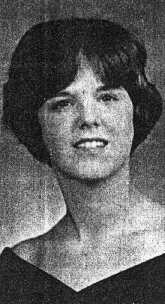Page 29
[Begin Tape 1, Side A]
Brunet: Why don't we start today by talking about your career. I think just at the end of yesterday's tape I had asked you about your work, when you started working in Cincinnati as an intern.
Pitt: I started in Cincinnati with the Cincinnati Enquirer as an intern when I was in college, probably between my junior and senior years in college, I guess. I worked in the women's department, which is where all young women worked in the newspapers then. This would have been in probably 1968 or '69, in that area. I was assigned very light featuresófamily reunions and recipes, cooking things, and just general what used to be called the women's page. I don't even think that exists anymore. Now they have "Accent" and "Lifestyle," and they've tried to integrate more general stories. But at that time it was the women's page, and the focus was definitely women.
Brunet: Even though the title has changed, is it really still directed towards women?
Pitt: Oh, I think it is. Sure, I think it is, just like there are a lot of women who read the sports page, but the sports page is directed at men. I think there are a lot of men who read the "Accent" sections and the "Lifestyle" sections and whatever we want to call them, but, yes, I feel quite confident that they're still directed at women, and, for the most part, women are the ones who write those features and who direct them, although it's, I guess, a coincidence that a fellow that I worked with in Cincinnati is now the "Lifestyle" editor of the Miami Herald. So maybe that's changing a little bit, too, but for the most part, just as we talked about yesterday, the fact that you find women in executive positions almost always being in personnel, but not in finance, a lot of the women that you find in higher positions in newspapers are still editors of the "Lifestyle" section and not so much editorial page editors. So, yes, I think it's changed. Obviously it's changed, and it's changed for the better, and I'm glad to see it change, but it's still, I think, female oriented.
Brunet: So did that internship help you get a position after you graduated from college?
Pitt: It did. It did and it didn't. The Cincinnati EnquireróI'm trying to remember. I don't know whether it was that they didn't have any openings or what. When I graduated from college, it helped me know that I didn't want to work on the women's pages. That I knew after doing it for whatever it was, two months or three months or whatever a summer internship is. I knew that that isn't what I wanted to do. I didn't want to write meatloaf recipes and family reunion stories. That wasn't very interesting to me. So it helped me in that respect to sort of focus on what I wanted to do, and the goal, again, I think as I mentioned before, was to write news, real news, hard news, cover fires and murders and riots and things like that.
I do remember that editors, when you talked to them about getting these types of jobs, seemed to have their little cubby holes, and they would have their woman reporter. If they already had a woman reporter, they didn't need any more women reporters, only they called them

